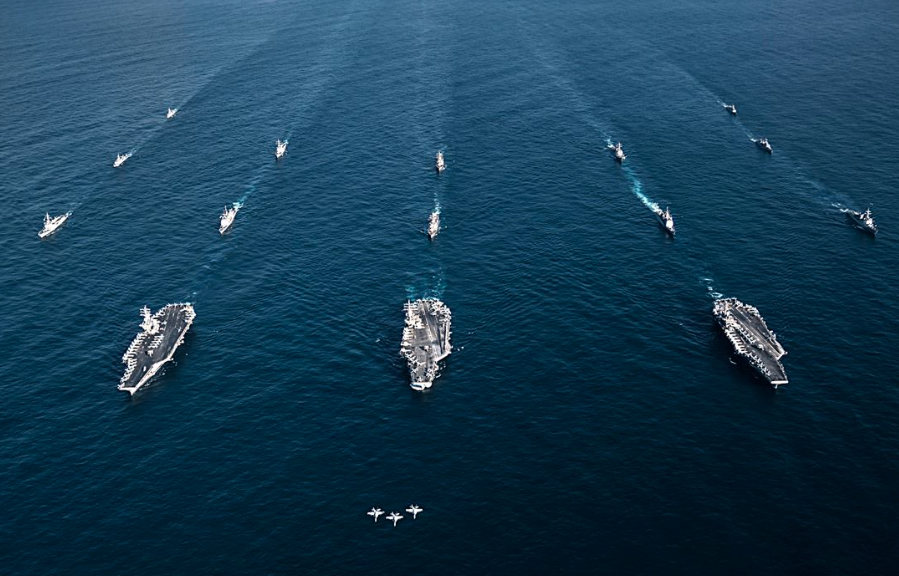WASHINGTON- Despite renewed diplomatic communication between North and South Korea, Secretary of State Rex Tillerson said Tuesday that the North’s nuclear threat is at a “tenuous stage,”ahead of the Winter Olympics in February.
The negotiations between North and South Korea began after Kim Jon-Un made consolatory remarks during his New Year’s Day address, saying that “the improvement of inter-Korean relations” is a “starting-point for peace and reunification.” The North Korean leader’s comments came on the heels of escalating tensions between Kim and President Donald Trump, who has lashed out at Kim following North Korea’s latest ballistic missile test.
While experts agree North Korea’s decision to take part in the Winter Olympics is not indicative of a long-term solution to the Korean nuclear crisis, the dialogue has provided a small window of short-term peace talks between the two nations with weeks to go until games begin in Pyeongchang, South Korea.
“Anytime you have an increase in interaction between nations the chance of warfare goes down,” said Jerry Hendrix, the director of the Defense Strategies and Assessments Program at the Center for a New American Security and a retired Captain in the United States Navy.
“To have North Korea communicating with South Korea, and for the North to indicate they’re sending athletes to South Korea, that at least suggests for the period of the Olympics there will be relative calm and stability on the Korean peninsula,” Hendricks said.
On Wednesday, officials with South Korea announced that both Korean countries will march together under a unified flag at the opening ceremony, and will field a joint women’s ice hockey team.
North Korea will send a 550-member delegation that includes 230 cheerleaders, 140 artists and 30 Taekwondo players for performances.
Some North Korean policy experts said that the North’s willingness to cooperate in conversation and agreements could ultimately lead to America taking part in talks.
“The North Korean participation of the Winter Olympics would be conducive for dialogues between North and South Korea,” said Yun Sun, a Senior Associate with the East Asia Program at the Stimson Center, a non-partisan policy research center. “However, so far North Korea has refused to discuss the issue of denuclearization, which we all know is the core of the security challenge we discuss.”
Charles Armstrong, an associate professor of Korean studies at Columbia University, said North Korea wants to deal with the U.S. from a position of “strength, and with a growing nuclear arsenal it feels it is on an equal playing field with the United States.
He said that North Korea’s “short-term goal” is to end its isolation from much of the rest of the world other than China and to gain relief from U.S. and United Nations economic sanctions.
Trump reaffirmed after the initial round of talks in January between the Koreas that he would be willing to open up talks, “under the right circumstances” with Kim’s government.
South Korean President Moon Jae-in credited Trump with helping push North Korea to meet with the South to force an agreement to improve relations .
Hendricks agrees that some credit is due to the President.
“By putting military operations as an option on the table, and some of the statements by the president has essentially caused North Korea to reconsider where it is,” Hendricks said in an interview. “The North Korean outreach to the South could be attributable to the President’s rhetoric.”
Michael O’Hanlon, a senior fellow in foreign policy at the Brookings Institution, does not believe at this point there is much to “celebrate”, until something is agreed to between the two Koreas. O’Hanlon said“I am happy to give credit to anyone and everyone if we can really get to a peace deal or nuclear deal of some type.”
Experts say that the threat of a nuclear attack by North Korea is virtually non-existent in the near future, with North Korea sending a large delegation to the Winter Olympics in South Korea. The temporary relaxation in tensions comes as Trump said there will be no military exercises while the Olympic games are being played.
But some foreign policy experts warn that the situation could change in a matter of seconds, in light of the volatile relations between North Korea and the U.S.
“I don’t think there is much risk of imminent danger from North Korea, but the situation is highly volatile,” said Richard Nephew, adjunct professor and senior research scholar at Columbia University. “The risk of conflict is real, and it could come from a response to an intemperate U.S. statement as much as anything else.”
“A decision to cool matters and to send North Korean athletes is a very good thing,” he added.

